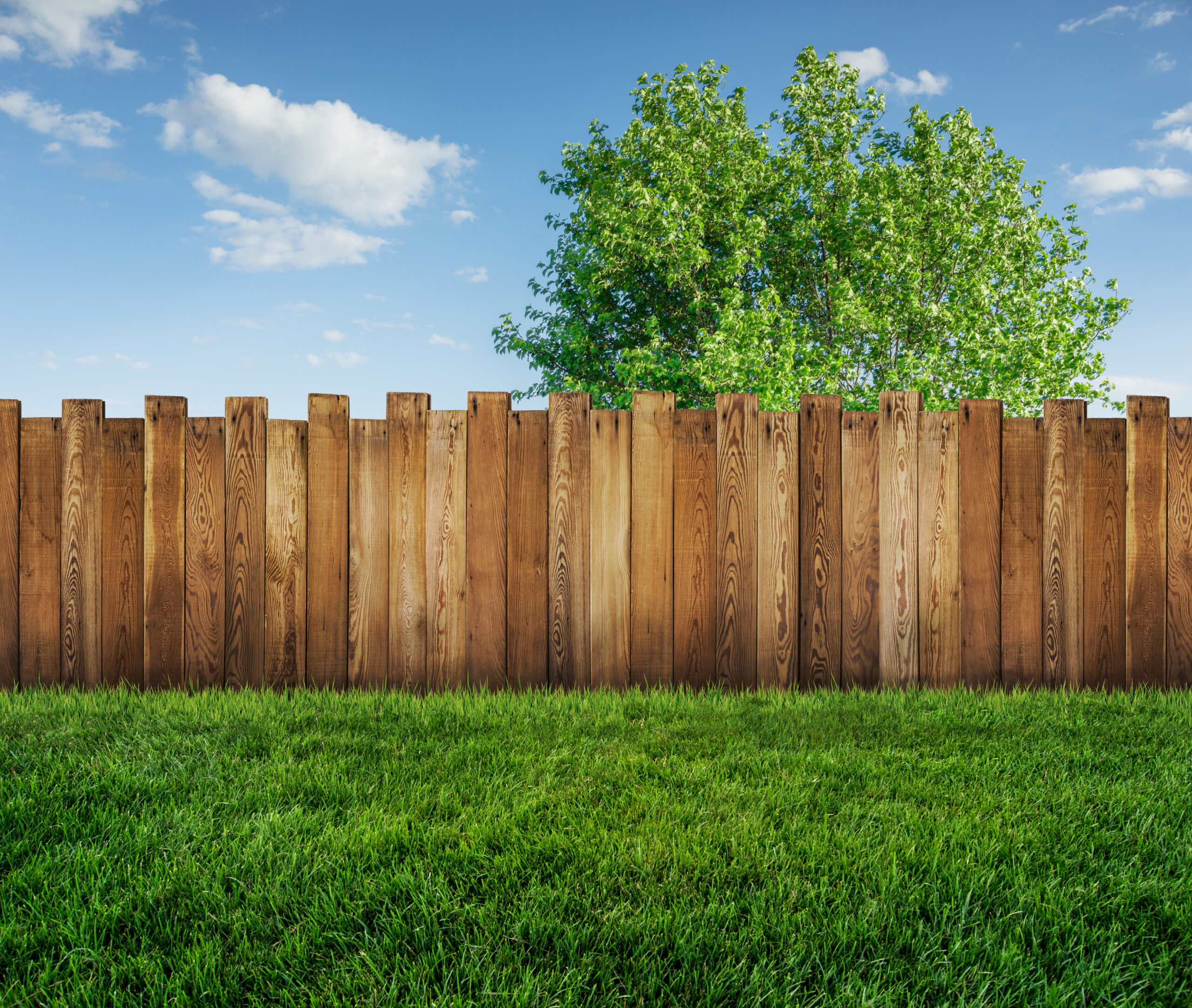Your fencing is a significant part of your garden or outdoor space and provides visual appeal, privacy, security and more. Like any other outdoor feature, fencing requires care, attention and regular maintenance to remain in the best possible condition throughout the year. Seasonal fence maintenance is essential to ensuring that your fencing can withstand all the seasons and the challenges that come with them. By taking the time to carry out fence maintenance, you can extend the lifespan of your fencing, avoid expensive repairs or replacements and ensure that you have a fence that lasts. In this blog post, we’ll explore seasonal fence care with essential tips for year-round maintenance.
At Fencing Supplies London, we have 20+ years of experience in the world of garden fencing. We take pride in delivering high-quality fencing solutions that bring your outdoor space to life with beauty, durability and affordability. Ready to enhance your garden? Get in touch with us today or view our product range here – we’re here to help in any way we can!
Seasonal Fence Care: Tips for Year-Round Maintenance
Your garden fencing is consistently exposed to the elements, from strong UV rays during summer, to chilly temperatures in winter. It goes without saying that sun, rain, wind, snow and more can all take a toll on your fencing and cause significant wear and tear over the years. But all is not lost – by staying proactive throughout the year and carrying out seasonal fence maintenance, you can stop damage in its tracks and help your fence remain protected year-round. Whether you have timber or composite fencing, the importance of seasonal maintenance should never be underestimated. Here are some of our top seasonal tips for year-round fence maintenance…
Spring Fence Maintenance
Spring is a great time to give your fence the attention it needs after the challenging winter months. Warmer days approach and flowers begin to bud, making spring fence maintenance a joy. Here are some of our tips for spring fence maintenance…
- Inspect For Damage
Winter can be harsh on our garden fencing, which is why inspecting it for damage in spring is essential. Timber fencing can be vulnerable to moisture and the cold temperatures that come with the winter months and, unfortunately, can cause rotting, warping and cracking. If you spot any damage, you must address it immediately as ignoring it can cause issues to escalate throughout the year.
- Clean Your Fence
We all give our homes a ‘spring clean’ – so why not extend this luxury to your fencing too? Dirt, moss, mildew and more may have accumulated on your fencing during the winter, and spring is a great time to give your fence a refresh. Pressure cleaning is a great way of cleaning your garden fencing quickly and efficiently, however, a gentle scrub with a soft brush does a fantastic job too.
- Treat Your Fence for Pests
During the winter months, pests and insects may seek shelter within your garden fence. Unfortunately, such insects and pests can significantly weaken the structure of your fencing if the issue is left unaddressed. Spring is the perfect time to treat your fence with a pest repellent or insecticide. If you spot signs of infestation, such as tunnels in the wood or small holes, you must address the issue immediately to prevent further damage.
Summer Fence Care
Summer brings sunshine and longer days, however, the intense heat can damage your garden fencing if necessary precautions aren’t undertaken. Many of us enjoy spending the summer months outside, so why not take some time to undertake summer fence care to protect your fencing?
- Reapply Wood Sealant
If you have a timber fence, you may find that it could crack, split or become discoloured during the summer months. A great way of protecting your fencing against strong UV rays is to apply a protective wood sealant or stain. A high-quality wood sealant provides a barrier against UV rays and moisture, helping to preserve your fencing’s appearance and strength for longer.
- Monitor for Wear & Tear
British weather can change rapidly, so monitoring your fencing for wear and tear throughout the summer months is essential. Wooden fences, in particular, can expand and contract under heat, so we recommend regularly inspecting your fence for any new signs of damage such as loose nails, screws, or screws that may have popped out due to temperature changes.
- Water the Base of Your Fence
When watering the plants in your garden, we advise watering the base of your fence and its posts too. Soil can dry out during the summer months which can cause your fence posts to shift or weaken. Watering the base of your fence posts can help to keep them firmly in place – particularly if you have wooden fence posts which will help stop the timber from shrinking and loosening in the soil.
Autumn Fence Care
As summer draws to a close, your garden will welcome in autumn. While autumn brings cooler temperatures, it is still warm enough to carry out essential fence maintenance to prepare your fence for the harsher and more challenging winter months that lie ahead.
- Clear Fallen Leaves & Debris
If you have trees, shrubs or bushes in your garden or near your fencing, it’s important to clear them away as they fall. While leaves may seem harmless to your fencing, they can trap moisture against your fence panels and posts if left to sit for long periods, often leading to rot and decay. Timber fences are particularly vulnerable to this, so make sure to clear away any fallen leaves, twigs or debris regularly.
- Check for Vulnerabilities
Before winter arrives and brings chilly temperatures with it, checking your fence for any vulnerabilities is essential. We advise checking the stability of your fencing and ensuring that your posts are secure in the ground. We also suggest inspecting your fencing for any cracks or splits in the wood, as these can expand when exposed to freezing temperatures. It’s also a good idea to trim any nearby plants or shrubs, as this can cause wear and tear over time.
Winter Fence Care
Winter poses a range of challenges and can be harsh on garden fencing with freezing temperatures, snow, ice and pests putting extra pressure on your fencing. By taking proactive steps to protect your fencing during the winter, you can prevent significant damage.
- Ensure Stability
Winter brings with it harsh weather conditions including snow, rain, hail, ice, strong winds and more. Before winter arrives, we strongly advise checking the stability of your fencing including making sure that the posts are secure, tightening any loose screws or bolts and replacing any damaged posts or panels. This will help prevent minor issues from escalating as a result of harsh weather conditions.
- Remove Snow & Ice
As winter progresses, we advise removing snow and ice from your garden fencing. If left to accumulate on your fencing, snow and ice can lead to additional weight and pressure on your fencing which can cause it to lean and break. Use a gentle brush to remove snow and, if it becomes covered in ice, use warm water to melt it away. Avoid using salt or chemicals on your fence, as these can cause damage to the materials over time.
By staying on top of regular fence maintenance tasks, you can significantly extend the life of your fence and ensure it stays strong and functional year-round. Regular fence care and maintenance will keep your fence in the best possible condition, no matter the season. For more information, please don’t hesitate to contact Fencing Supplies London today!
Signs You Need a New Fence
While regular and seasonal maintenance can extend the lifespan of your fence, there are times when repairs simply aren’t enough. Here are some signs that it may be time to replace your fencing…
- Rot or Decay
Over time, fencing can become susceptible to rot and decay – particularly wooden fencing. If your fence has been exposed to excess moisture and hasn’t been properly maintained throughout the year, you may notice soft or spongy spots on your fence or areas that are crumbling or breaking apart. If this is the case, you may need a new fence!
- Rusting or Corrosion
Some fencing types, such as metal fences, are susceptible to rust and corrosion, especially in areas with high rainfall. Small patches of rust can usually be treated, but extensive corrosion may compromise the integrity of the fence. If rust is widespread and cannot be removed, it’s time to consider replacing it.
- Damage Beyond Repair
Has your fence been damaged in a winter storm? Perhaps the summer sun has caused warping and cracking? If so, it may be damaged beyond repair and will need replacing. At Fencing Supplies London, we offer an extensive range of fencing options and we’re confident that you’ll find one that suits your needs.
- Structural Instability
Strong winds and unstable posts can cause your fence to lean or sag. If your garden fencing is leaning or sagging, you may need to think about replacing it as it is no longer providing security, stability and visible appeal. An unstable fence can also pose a security and safety risk.
If you spot any of these signs, you may need to replace your garden fencing. At Fencing Supplies London, we offer an extensive range of fencing options and we’re confident that you’ll find one that suits your needs. Visit our website today to see how we can help!
Keeping Your Fence Strong in Every Season
While seasonal fence maintenance might seem like a lot of work, the benefits are clear to see. By following our seasonal fence maintenance tips, you can ensure that your fence continues to provide security, privacy and beauty for many years to come. Regular inspections, cleaning and treatments can protect your fence from the elements, stop minor issues from escalating and reduce the need for expensive repairs. If your fence has reached the end of its life or needs significant repairs, please don’t hesitate to get in touch with Fencing Supplies London. Our expert team is here to help you find the perfect fence.
FAQs
How often should I clean my wooden fence?
Cleaning your wooden fence once a year is recommended, ideally in spring. Regular cleaning helps to prevent the growth of moss, algae and mildew.
How can I prevent my wooden fence from rotting?
Applying a wood preservative, sealant, or stain can help protect your fence from moisture and prevent rot. We recommend reapplying treatments every 1-2 years.
What should I do if my fence posts are leaning?
If your fence posts are leaning, you can straighten them by reinforcing them with additional support or replacing the posts entirely if necessary.
Can I paint my fence during winter?
We advise against painting your fence during winter due to the cold temperatures, which can affect the paint’s adhesion and drying time.
How can I make my fence last longer?
Regular seasonal maintenance such as cleaning, sealing and inspecting for damage will help extend the lifespan of your fence.
Should I replace my fence if it’s damaged in a storm?
If the damage is severe, it’s best to replace the fence. Minor repairs can be done, but if the structure is compromised, replacement may be necessary.
What time of year is best for replacing a fence?
Spring and autumn are ideal times to replace a fence due to milder weather conditions that make installation easier.
Can I handle fence maintenance on my own?
Yes, many aspects of fence maintenance can be done yourself with the right tools and safety measures. For more complex repairs, consider consulting a professional.
If you’re looking for a new fence, Fencing Supplies London is here to help. Visit our website to explore our full range of high-quality fencing products. Let’s keep your fence strong and beautiful all year round!





